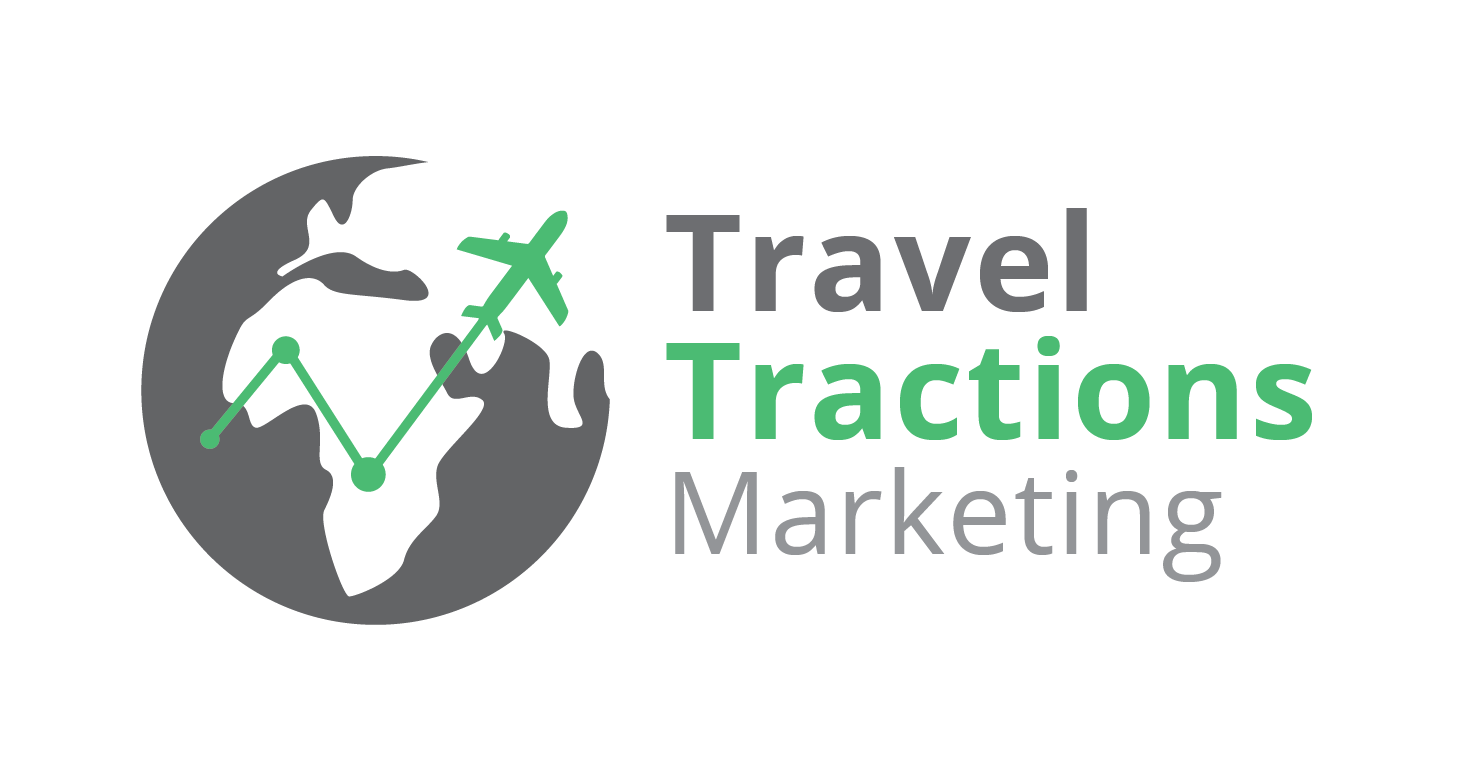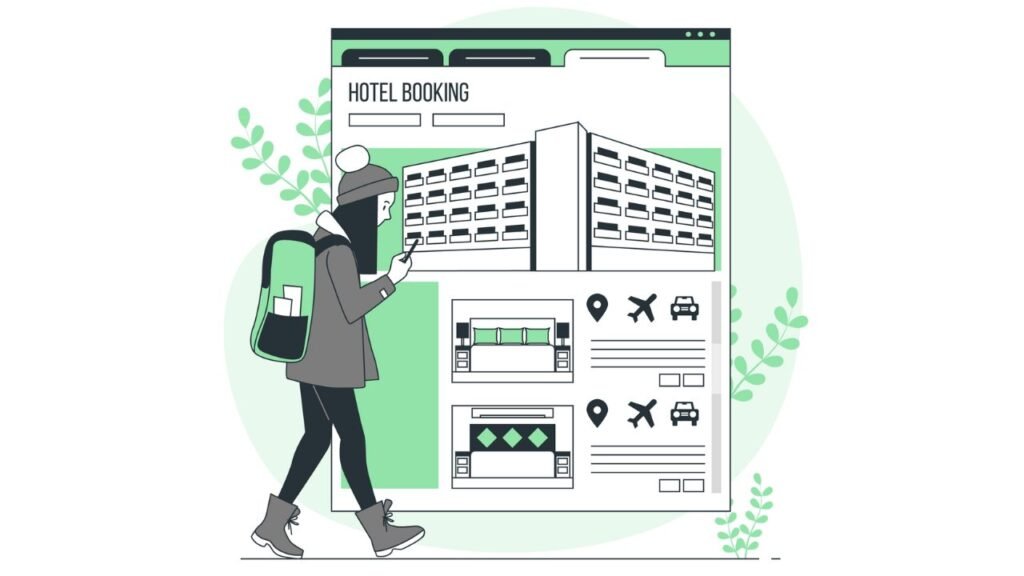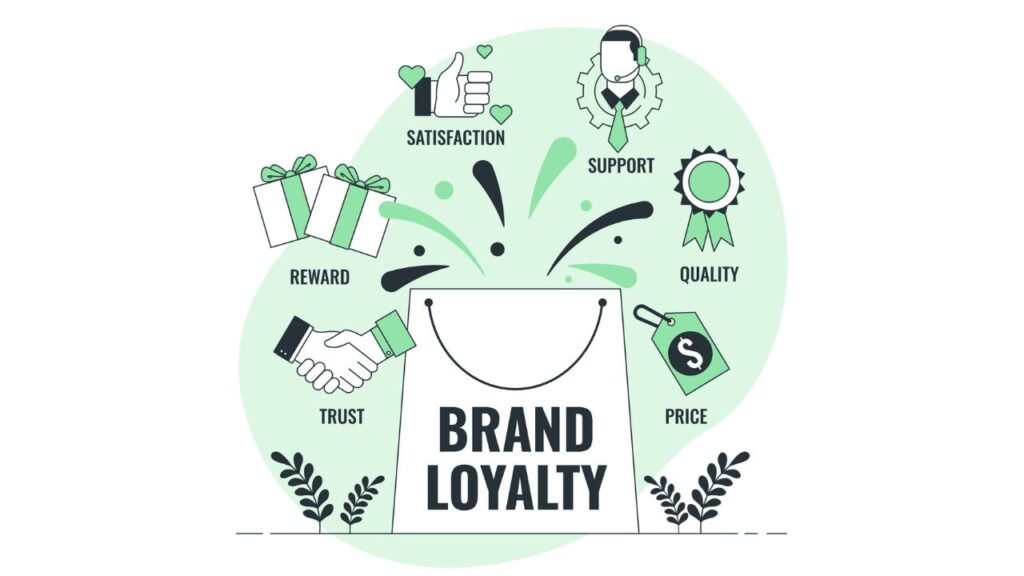
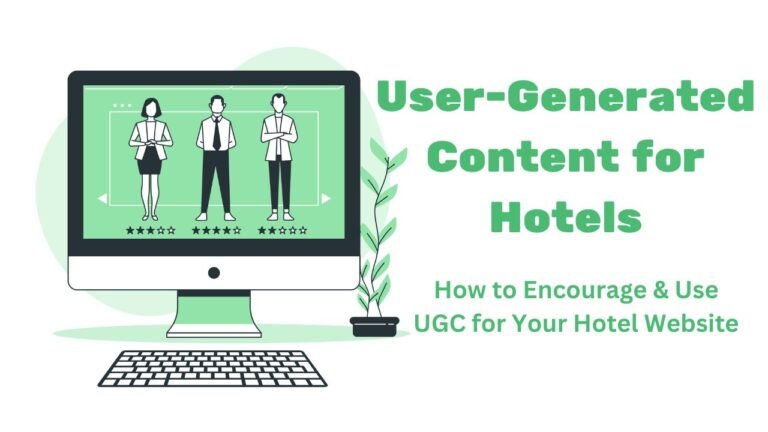
User-Generated Content for Hotels | How to Encourage & Use It
Whether you’re as big a site as Airbnb or a small coliving space looking to make your mark, the impact of user-generated content (UGC) cannot be denied. From social media posts to online reviews, UGC can make an impact in a plethora of ways.
Not all customer content is sunshine and roses, though, but you can turn your greatest weakness into an undeniable strength with targeted marketing efforts. Knowing about UGC is one thing, but knowing how to leverage it is a completely different story.
So stick around as we unpack what user-generated content for hotels can mean for your business. From creating social posts to bringing potential customers with UGC, you’re in the right place to elevate your hospitality marketing strategy.
What Is User-Generated Content
Simply put, user-generated content (UGC) is when guests and customers create content. This content is usually your guests’ experience, reviews, opinions, or feedback about your hotel, and is shared across multiple platforms.
The more popular platforms include Instagram, Facebook, TikTok, and your hotel website. With that in mind, let’s look at how UGC can help boost your brand loyalty, awareness, and, inevitably, sales.
How UGC for Hotels Can Boost Your Marketing Strategy
From fostering trust within an online community to getting free, authentic content, UGC has plenty of benefits. So, let’s have a look at how UGC can improve your accommodations content marketing strategy even further.
UGC Helps Build Trust
Despite living in a time when AI is on the rise, people will always trust another person’s word. And that’s no different for UGC, as almost 93% of potential guests will read reviews before booking a hotel online, as per Dixa.
Generally, this social proof suggests that your hotel is a good choice, and having a high number of positive reviews helps build trust with your target audience.
It’s not just potential guests who use UGC as a trust metric, though, as Google’s EEAT model also incorporates this into its algorithm. So, good UGC not only helps earn trust amongst guests but it also helps improve your potential to rank in the search engines like Google and Bing.
UGC Is Free Content and Exposure for Your Brand
When people are on holiday, they tend to snap lots of photos. They also love to tell the world all about their experience, and more often than not, that includes their stay. This unique guest content is usually spread across various social channels.
You can only begin to imagine how beneficial it can be for your brand when you’re tagged in a post or your customer photos feature your hotel. Generally speaking, this authentic content featuring first-hand experience is completely free and offers the perfect opportunity for your brand to reach new people.
Note: Not all UGC is free, as you can work with influencers and travel bloggers to create this content for you.
UGC Can Help Drive Your Advertising Performance
Adapting your hotel advertising strategy to include the relevant content created by guests can also prove hugely beneficial. People trust and prefer authentic content, so incorporating real experiences into your ad campaigns can make a huge difference.
The stats don’t lie either. InBeat completed research and found that 84% of today’s youth trust brands more when there are actual customers in ads.
There are plenty of ways you can use customer content as well. You can incorporate guest photos or take negative comments and showcase the changes you made because of that feedback. The possibilities are endless, and it can all improve your advertising campaigns in the long run.
People Tend to Engage More With User-Generated Content
Considering people trust UGC far more than brand-produced content, it only makes sense that there’s a far greater engagement rate. Hotel brands are also able to reach a vast audience thanks to UGC, as many of your guest’s followers may never have heard of your brand until now.
Add the fact that they are all unique experiences, and user-generated content also tends to entice readers in a whole new way. With UGC, you don’t really need to ‘sell’ the hotel, as previous guests will do that for you.
UGC Can Help Increase Bookings for Your Business
As per Power Reviews, UGC tends to result in a 100.6% increase in conversions. If you need any more convincing that UGC is the way to go for your hotel’s marketing strategy, then the stats certainly will help.
Considering the cost-effectiveness of user-generated content, its increase in engagement, and its trustworthiness, UGC really is a no-brainer. There are plenty of ways you can leverage this type of content, so let’s dive into that next.
How to Leverage UGC in the Hospitality Industry
There are plenty of ways you can use UGC to improve your hotel’s reach. From turning guests into brand advocates to using influencer content to help persuade potential guests, there are a plethora of ways to use it to your advantage.
So, let’s have a look at how you can use UGC in your hotel’s SEO campaigns to help your website hit new heights.
1. Encourage Guests to Leave Reviews
A surefire way to earn a positive reputation is through online reviews. One of the best places you can earn reviews to improve your website’s ranking potential is on your hotel’s website or your Google My Business page.
Both are excellent ways to earn loyalty and assure future guests that your hotel is worth staying at, especially if you have many good reviews. Add asking for reviews to your email marketing strategy so that as a guest’s stay ends, you provide an automated follow-up email asking for their feedback.
It’s also a great idea to encourage guests to include images and videos in their reviews. From there, using the good and the bad feedback can prove beneficial if you target them correctly.
Note: Third-party booking sites like Booking.com and Airbnb will automatically send out a feedback email, and these reviews will only appear on the booking site. You can add these comments to your site with a review widget.
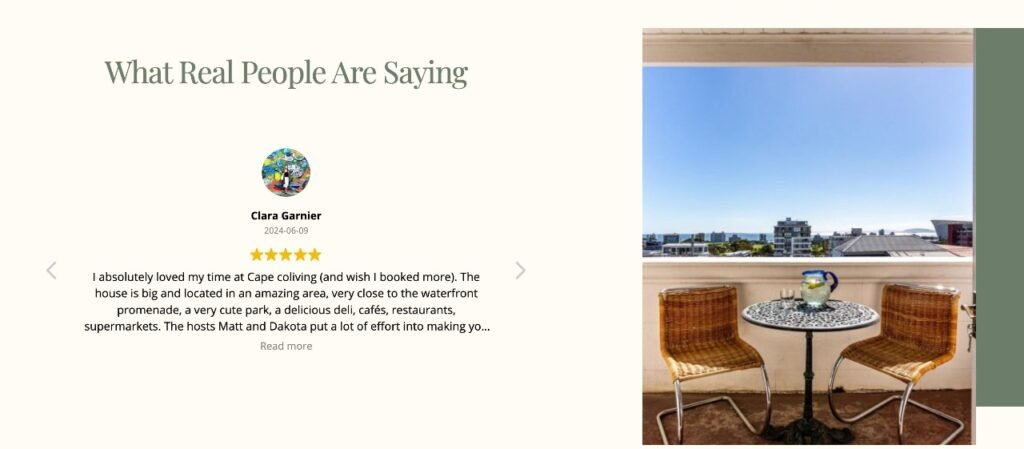
2. Use Micro-Influencers as a Powerful Marketing Tool
This may not be a free method to earn positive reviews, but it is one of the more impactful ways to do so. As per Neil Patel, micro-influencers are far more cost-effective than well-known influencers, and while their reach isn’t as great, their follower engagement rate is quite high.
As such, micro-influencers can be the golden ticket to improving your hotel’s brand visibility, trustworthiness, and value for potential visitors. Micro-influencers are also generally more interested in working with you, and if you target the right influencers, you can easily start to see an uptick in visitors.
Plus: Micro-influencers tend to come across as more authentic or relatable in their content, which further boards well in convincing potential customers to book with you.
3. Incorporate UGC Into Your Social Media Strategy
Although it’s not directly connected to your website or services, having a strong social media presence is essential. This is where many of your guests will share their experiences of your hotel, and it can often go unnoticed unless you start optimising for this.
Using a branded hashtag is one of the easiest ways to garner interest and create a connection between your hotel and the content shared by your guests.
Other great processes you can use include using UGC for your hotel’s social media. This also provides a great opportunity to take feedback or negative reviews and turn them into positive examples of how you’re taking customer feedback seriously.
Other good examples include showcasing the changes you made based on customer suggestions and using customer photos and comments. Simply put, using UGC can create a good sense of authenticity on your own social media profile.
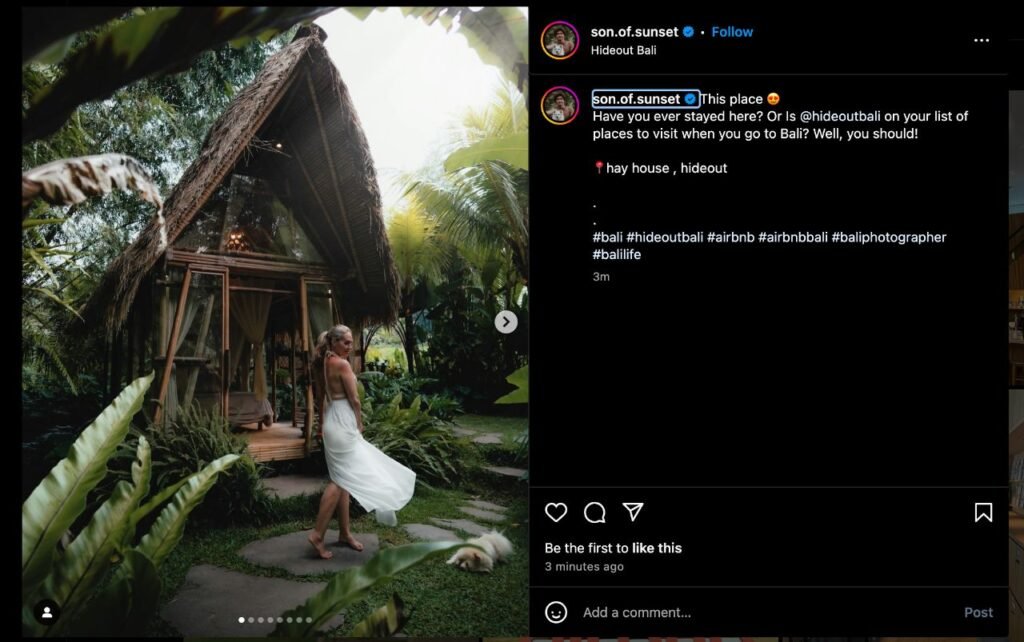
4. Create UGC-Centred Adverts
Much like you would do for your social media strategy, you can also incorporate UGC content into your hotel’s ad strategy. Creating content for your ads can be as easy as adding reviews, customer-produced photos, and videos to your advertisements.
Just note you will need to request the usage of this UGC content. Here are some of the best ways to do so:
- Ask the creator directly on social media.
- Provide creator credits and tags to the content owner.
- Use a UGC rights management platform like Taggbox.
By doing this, you’ll be able to avoid any legal complications when repurposing somebody else’s content.
5. Use Storytelling Through Customer Experiences
Last but certainly not least, social media consumers love a good story. When guests share content that tells their story, it provides details and information to users that brand images and videos cannot.
By reposting or sharing your customer’s experiences on your hotel’s social media platform, you can use this storytelling to your advantage. Commenting on these posts can further showcase your brand’s interest in your clients, which can further sway a potential guest into booking a stay.
In other words, using these stories and experiences to your advantage is one of the best ways to leverage UGC for your hotel.
Wrapping Up How UGC Can Improve Your Hotels Marketing Campaigns
So there you have it — a complete guide to using user-generated content for your hotel. Whether you’re looking to get more direct bookings or you simply want to improve your brand’s visibility, UGC could be the one thing you’ve been missing.
Looking for more answers? Book a free consultation with us to discuss a personalised content campaign using UGC.

